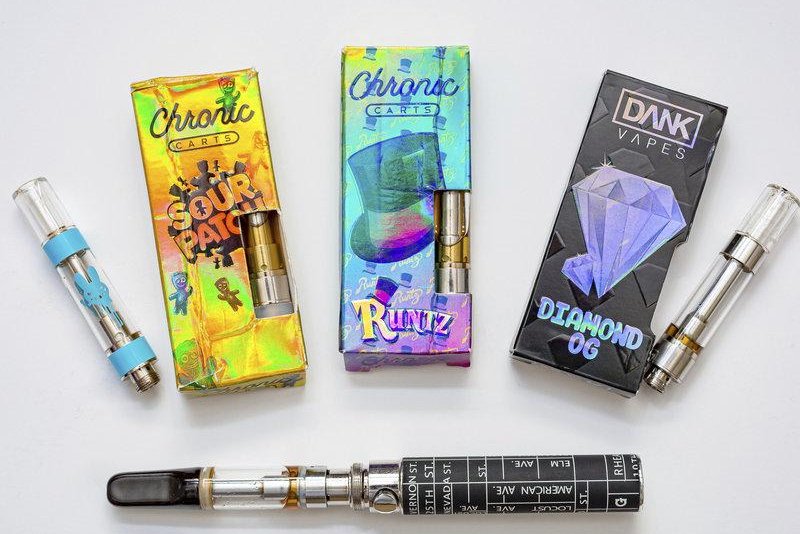The number of deaths from vaping-related illness reached 52 this week, but federal health officials believe the outbreak has peaked. Photo courtesy of New York State Department of Health
Dec. 12 (UPI) -- The number of vaping-related lung illness deaths reported rose again this week to 52, up four from last week's total, but federal health researchers believe the outbreak has peaked. More deaths are under investigation.
A total of 2,409 patients have been hospitalized, an increase of 118 from last week. Cases have been found in all 50 states, Puerto Rico, the District of Columbia and the U.S. Virgin Islands.
The outbreak appears to have crested in September, but new cases continue to be reported or recategorized by state health officials, the Centers for Disease Control and Prevention said.
Meanwhile, a study from Oregon showed that terpenes added to THC vape cartridges could emit toxic chemicals. Terpenes are added to pure THC distillations to dilute the product and provide the vapor with aroma and taste. Pure THC has no flavor or smell.
Cannabis companies in the newly state-legalized industry have spent millions of dollars on developing specific branded terpene profiles for vaping products.
Lab-created e-liquids and "dabs" produced toxic chemicals when they were heated, said senior researchers at Portland State University. Those included cancer-causing benzene and an air pollutant called methacrolein, as well as xylenes, toluene, styrene and ethylbenzene.
Also, the CDC last week identified brands of THC vaping cartridges, most of them illegal, that patients had identified with e-cigarette, or vaping, product use associated lung injury, or EVALI.
Overall, 152 different THC-containing product brands were reported by EVALI patients, the agency said.
The brand Dank Vapes, a counterfeit THC brand home-made by smaller dealers from internet-purchased packaging, was the most commonly reported brand used by patients nationwide, the agency said.
Dank Vapes showed up most often in the Northeast and South, while TKO and Smart Cart brands were more commonly reported by patients in the West. TKO is a legal THC brand manufactured in California, but has been counterfeited, the company said. Rove, also a legal brand, was more common in the Midwest.
Federal health investigators still recommend that people not use THC-containing vaping products, particularly from illicit sources. They also should not use vaping products that have been altered, the agency said.
The CDC earlier identified the THC diluent cutting agent vitamin E acetate as a chemical that showed up in lung tissue from EVALI patients from 10 states who said they vaped illicit THC vapes.
"While it appears that vitamin E acetate is associated with EVALI, evidence is not yet sufficient to rule out contribution of other chemicals of concern," the agency said.
Patients with EVALI typically experience symptoms that include shortness of breath, coughing, chest pain and gastrointestinal symptoms of abdominal pain, nausea, vomiting and diarrhea. Other symptoms may include fever, chills and weight loss.
The CDC now only counts patients who have been hospitalized with EVALI for its weekly updates.















